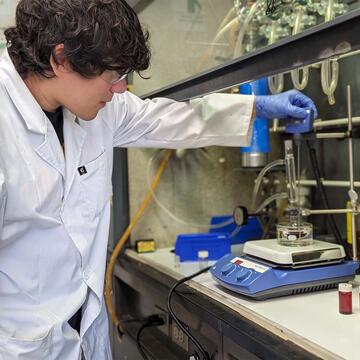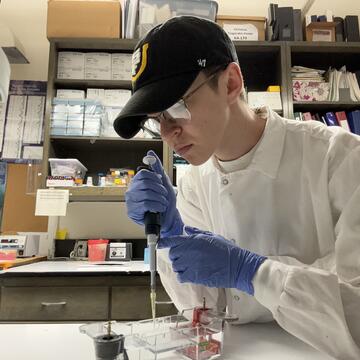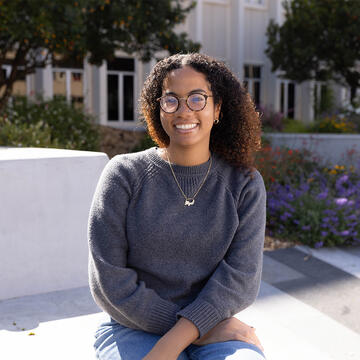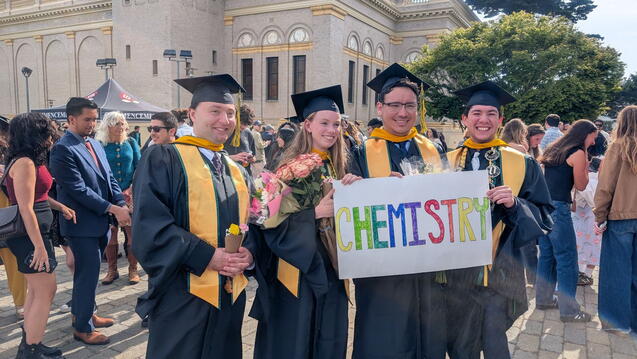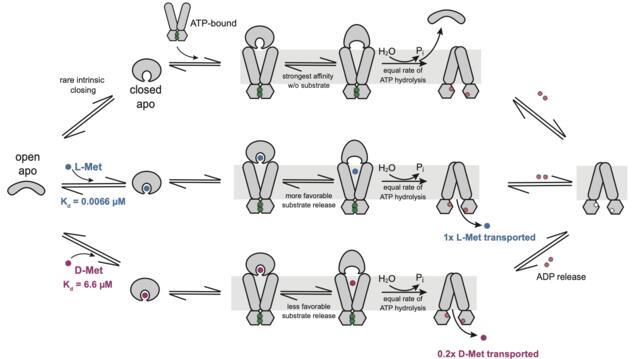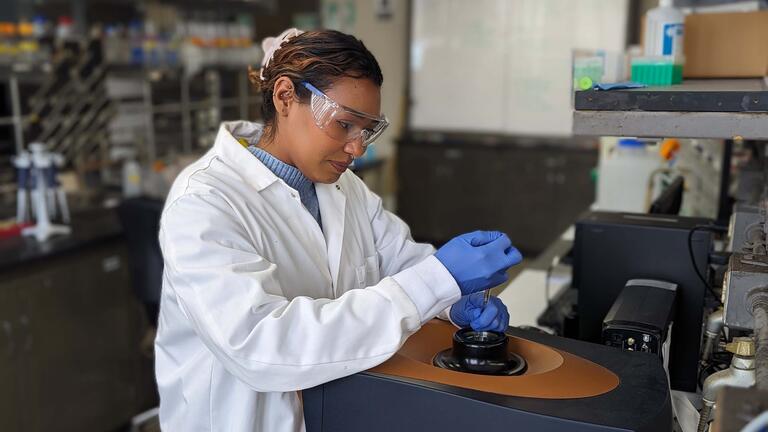
Chemistry, MS
Prepare to succeed in a future in professional research and development, teaching, PhD program, or health-related professional program. Immerse yourself in a research-based degree with personalized direction from faculty. Conduct hands-on training. Graduate equipped and inspired to make a difference.
Apply Now for Fall
The Fall application is open. The next priority application date for next Fall is April 1.
Conduct Research
Train with experts in the different chemistry subdisciplines. Our research groups include analytical chemistry, biochemistry, bioinorganic chemistry, inorganic chemistry, organic chemistry, and physical chemistry.
Full-Tuition Merit Scholarships
All admitted students receive a full-tuition scholarship for their graduate studies. During the semester, graduate students receive a small supplement through teaching assistantships for our undergraduate lab courses.
Practice Greener Chemistry
Chemistry professors at USF have signed the Green Chemistry Commitment, a voluntary effort to reduce chemical products and processes that use or generate hazardous substances.
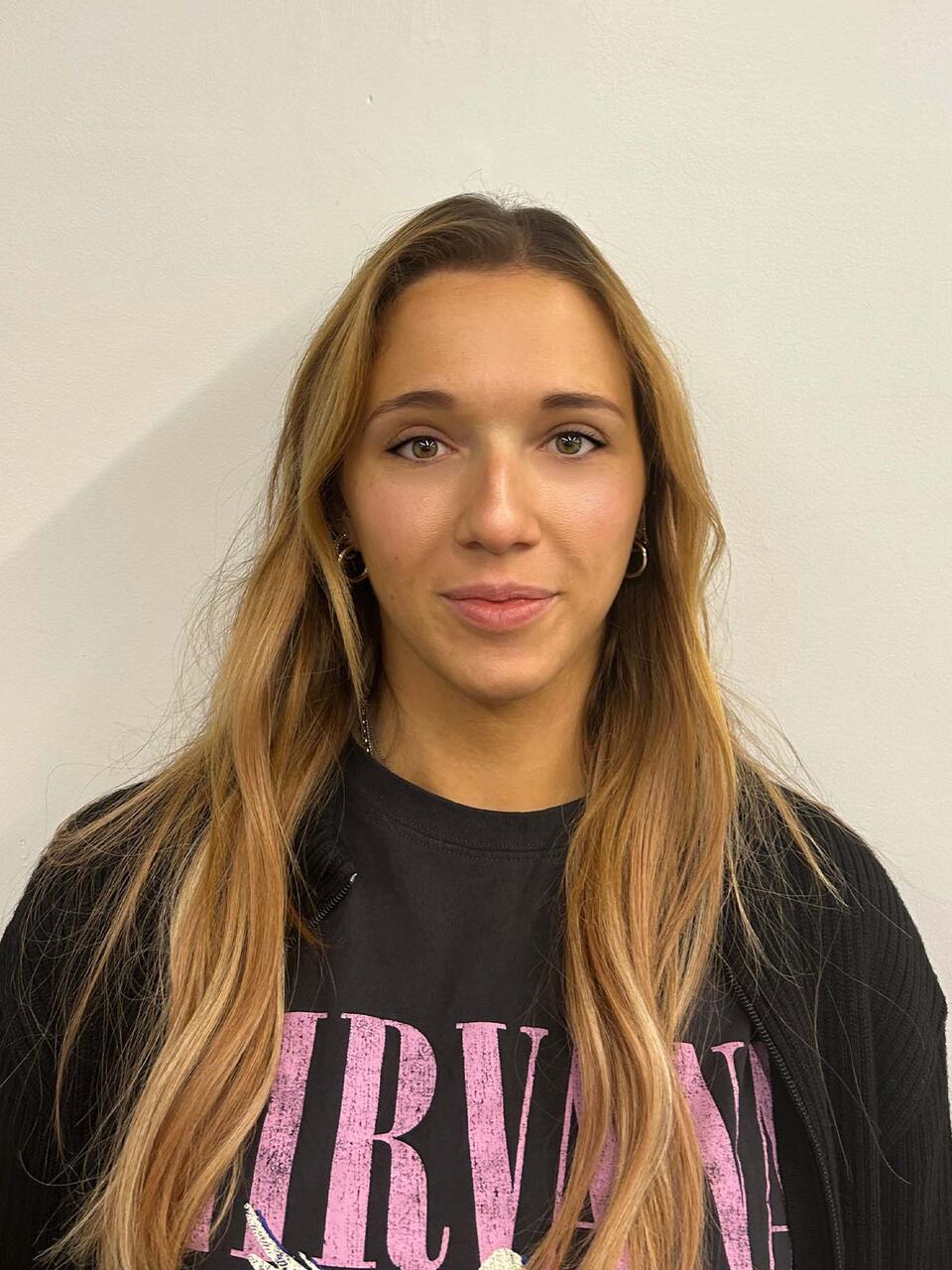
Sara Gallarati MS '22
Your career advice for USF students?
My suggestion is to be curious and don't be shy of talking to people and explore what are the possibilities out there."
Sara Gallarati MS '22
Chat With a Current Grad Student
Have questions about grad life at USF? Get real insights from current College of Arts & Sciences graduate students. Chat now and hear firsthand about classes, campus life, and more!
Upcoming Events
There are no upcoming events at this time.
Read Our Stories
Take the Next Step
Admission & Aid
Chemistry, MS
2130 Fulton Street
San Francisco, CA 94117
M-F 8:30 a.m. – 5 p.m.
